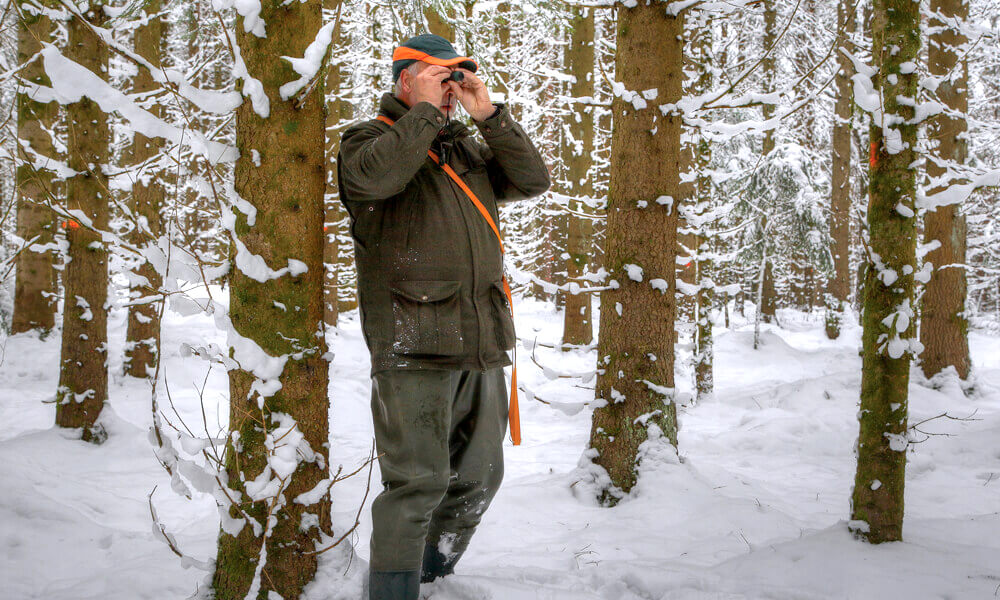Blog
Happy hunting and healthy hearts
November 24, 2022
Have a game plan for heart health before heading out to hunt
Hunters are often excellent planners when it comes to gun safety, organizing their gear and getting licenses required for opening day. Unfortunately, the same consideration doesn't always go into their heart health.
People who are not used to getting regular physical activity may not be ready for the physical demands of the season. The exertion of walking rugged terrain, dragging an animal out of the woods or even environmental stresses like cold and altitude can put severe strain on the heart. Even the excitement before taking a shot can get the heart racing and put hunters at risk for a heart attack—particularly aging hunters or those not in the best physical shape.
Before hitting the woods, take time to fully prepare for a safe season. Always pack your common sense, scope out potential hazards and do what you can to protect your health—and life.
Be realistic about your physical abilities
If you are over age 35, you are at an increased risk for heart disease. Those risks increase if you have high blood pressure, are overweight, use tobacco or have a family history of cardiac conditions. If you are not active, the physical demands of hunting could also increase the risk of a heart attack.
Start moving!
Proper training is important for any sport, especially something as physically taxing as hunting. Walk at least 30 minutes a day to prepare for the season. Hunters should not expect to cover miles of hilly, uneven terrain without the proper conditioning. People who have been sedentary all year should start walking slowly and gradually work up to a brisker pace.
Stay connected—always
Bring your cell phone. Let people know where you will be hunting and decide on an approximate time that you anticipate returning. Keep fellow hunters informed if you'll be in the field or woods longer—like if you are tracking an animal—and ask others for help if you could use some assistance.
Keep medications at close range
If you have a prescription for heart issues—or any medical condition—bring your medications with you. Even if you're not staying for an extended time, packing your meds could be critical if you get delayed—something common when spending time in the field or woods.
Know the signs of heart attack
Symptoms of a heart attack vary. Some people have mild symptoms; for others, symptoms are severe. Knowing the signs can help you act fast. Listen to your body and get medical assistance if you or someone in your party experience:
• Discomfort or pain that spreads to the neck, shoulders, jaw, teeth or arms
• Chest pain that feels like pressure, tightness, squeezing, pain or aching
• Dizziness, shortness of breath, fainting, sweating or nausea
• Fatigue
• Heartburn or indigestion
Never think it can't happen to you—things to remember
Every hunter knows to expect the unexpected when in the field, water or woods. First and foremost, understand your limitations. If you're tired, rest. If you need help, ask. Remember the warning signs of a heart attack and do what you can to help stay safe, including:
• Get plenty of sleep and watch your alcohol intake. Lack of sleep, plus alcohol consumption, can put more stress on the heart.
• If you have cardiac disease and your provider has prescribed nitroglycerin tablets, keep them with you to take as directed for chest pain.
• Take time to sit down and rest when needed.
• Know the closest hospitals that provide 24-hour emergency services.
• Act immediately. The American Heart Association recommends that anyone experiencing chest pain and discomfort for two minutes or more should call 911 or go to a hospital immediately. Prompt action is imperative.
Schedule a nuclear medicine/cardiology stress test at EBCH
An ounce of prevention is worth a pound of cure—which is why regular check-ups, wellness visits and preventative screenings are so important. If you are at risk for heart disease or have a family history of heart-related issues, talk to your primary care provider about scheduling a nuclear medicine/cardiology stress test at Ely-Bloomenson Community Hospital. The state-of-the-art screening provides detailed, accurate images of the heart to pinpoint potential problems before they get more serious. Having a clear picture of your heart health helps providers determine treatment plans—and gives you a more complete understanding of limitations or modifications to make to help prepare for a safer hunting season.
EBCH emergency services—here when you need us
Even the most seasoned hunters can have medical emergencies that are beyond their control. Our skilled, emergency services teams are here 24 hours a day, 7 days a week. If you are experiencing a medical emergency, like a heart attack, call 911 immediately. Erring on the side of caution could be the difference between recovery and tragedy.
EBCH has also partnered with the Minnesota DNR to offer a variety of outdoor safety classes, including safe use of firearms, ATVs, snowmobiles and watercraft; everyone who completes one of the safety classes receives a blaze orange EBCH hat.
Set your sights on heart health for a healthy hunting season. To learn more about nuclear medicine/cardiology stress test at EBCH, call 218-365-8737 or visit https://www.ebch.org/services/cardiopulmonary-rehab.